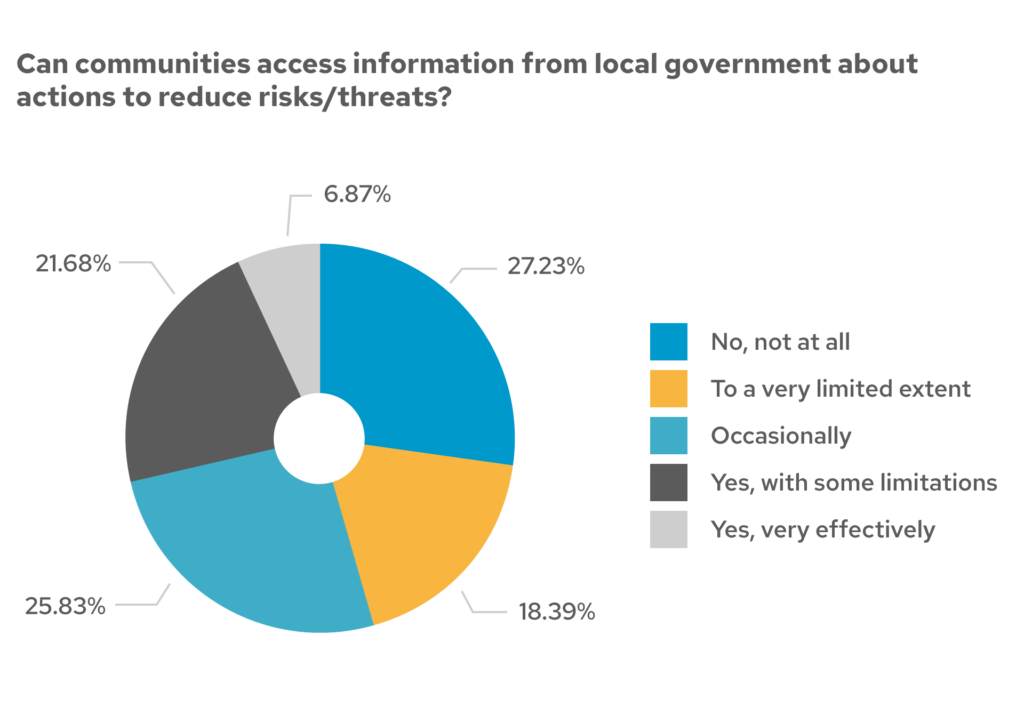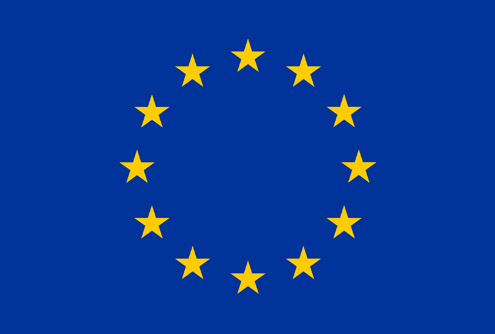VIEWS FROM THE FRONTLINE
Ethiopia
We’re working with 15 communities in Ethiopia to ensure that development is informed by the perspectives of people most at risk.
As part of our global Views from the Frontline programme we have surveyed community members, civil society organisations and government representatives across the country. Here we present our key findings, conclusions, activities and impact.
Random household surveys
Civil society surveys
Local government surveys
Key findings and conclusions at the national level
- Disease/epidemics and drought are the two most prioritised threats
- Inclusion of communities in assessment, planning, implementation and monitoring of risk reduction plans and activities needs to improve by both civil society organisations and local government representatives
- Coherence between disaster risk reduction, climate change adaptation and ecosystem approaches are not well understood and applied at the local level

Surveys undertaken in Ethiopia
Our Views from the Frontline surveys in Ethiopia were undertaken in 2019.
Who was surveyed?
We surveyed 1,870 random households, 150 civil society organisations, 151 local government representatives, and undertook 77 community consultations.
Risk locations prioritised
We prioritised four risk areas:
- Ebinat
- LiboKemekem
- Adaar
- Mille
Communities surveyed
We surveyed people from 15 communities: Worgaja, Tarasemba, Wonberoch, Kebele 01, Tezamba, Shina, Yefag, A/zemen Kebele 01, Woantu & Fursa, Woranso & Hormatie, Eliwuha, Negana Burtele, Hantimgetai, Harsis, Mille 01.
Our impact
Activities undertaken in response to community-level findings and conclusions
- Promotion of health and maintenance of basic health services for the communities most at risk
- Integrated floodwater systems, drainage systems, and waste management systems piloted to address flood issues
- Promotion of environmental protection through ecosystem restoration and management
- Training on conflict management to address the underlying causes of the increase in hazards
Impact of activities
- Capacity of communities strengthened in ecosystem restoration, drought and flood resilience, ways to deal with different types of diseases, and how to live in safe environment
- Communities have gained knowledge on soil and water conservation techniques, environment conservation, safe livestock management and disaster management
- Increased inclusion of communities in assessment, planning, implementation and monitoring of risk reduction plans and activities at local level
Restoring land, ecosystems, and livelihoods in Taresemba Kebele
Community members in Tarasemba Kebele identified ecosystem management as a challenge and prioritised afforestation as one of the ways of addressing the problem.
Together, Tarasemba Kebele dwellers identified an area, then selected suitable indigenous plants to grow. Peppermint, Grevillea Robusta, Arzalibanos, and Buckthorn were selected as the most suitable trees to plant.
The community helped in developing binding rules to protect the afforested area from intrusion. Today, 50 community households now have fodder for their cattle.
Natural rehabilitation of the afforrested area has also enhanced vegetation and structural conservation, so much so that a local university and the Woreda Agricultural Office have agreed to scale up the project into a research and community service demonstration site.
Our project partners in Ethiopia
Our Views from the Frontline programme is implemented by GNDR member organisations and partners in the country.
National coordinating organisation
- Bahir Dar University
Partner organisations
- Ebinat Agriculture Office
- Libo Environmental Protection Authority
- Adaar Woreda Disaster Risk Management and Food Security Working Process
View all data from Ethiopia
You can view all our Views from the Frontline survey data using our data dashboard. You can also learn more about our methodology for selecting at-risk areas and survey respondents.
Project funded by
European Union

Our Views from the Frontline project is funded by the European Union (EU). Content related to this project on our website was made possible by the support of the EU. All content is the sole responsibility of GNDR and does not necessarily reflect the views of the EU.
View their websitePhoto credit
Photo by Erik Hathaway on Unsplash.